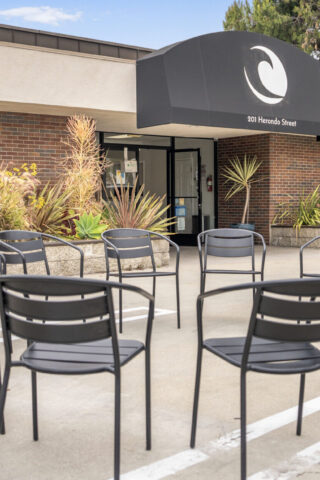Teen Bipolar Disorder Treatment Programs in Los Angeles, CA
Quality Care for Bipolar Disorder in Teens
Complimentary Assessment
Teen Intensive Outpatient Program (IOP)
Our teen intensive outpatient programs (IOPs) take a comprehensive approach to bipolar disorder, combining individual therapy, group sessions, family-focused therapy, and holistic practices.
If you’re struggling with teen bipolar disorder, enrolling in our IOP will give you an opportunity to heal and work through ongoing challenges. Our team provides practical skills for stability while supporting academic and social growth.

Teen IOP
- 12 weeks of treatment
- 3 days a week
- 3 hours per day
You are free to identify the days that support your schedule, Monday through Friday
What to Expect with Teen IOP
Joining our IOP marks the beginning of your healing journey. Our teen-focused IOP provides practical strategies to manage bipolar mood swings, develop stable relationships, and build effective coping skills designed specifically for adolescents.
Throughout the program, you’ll work with a dedicated team including a case manager, individual therapist, group counselor, and holistic practitioner, all creating a personalized treatment plan to address your bipolar symptoms. These programs include:

Individual Therapy
Our therapists will determine which therapy method is best for you, such as eye movement desensitization reprocessing (EMDR) therapy, somatic therapy, gestalt therapy, dialectical behavioral therapy (DBT) or cognitive behavioral therapy (CBT).

Medication Management
We provide you with tailored adolescent psychiatry services that consider your environment, genetics, and mental state to monitor the effects of the medication.

Case Management

Group Therapy
You will have the opportunity to give and receive peer support and ease overwhelming feelings. You will also attend other types of group sessions which will focus on specific goals.

Holistic Groups
Our Treatment Centers Near You
What We Treat at Clear
We treat a variety of mental health conditions for teens including depression, anxiety, PTSD and more. We also offer mental health and addiction treatment for adults both online and in-person.
Types of Bipolar Disorder
There are two types of bipolar disorder; they have similarities in symptoms, but they do present differently. Here are types of bipolar disorder teens struggle with:
-
Bipolar I disorder: Normally, this presents depression and mania in teens. When the manic episodes manifest, they can be severe, and you may need hospitalization for severe mania.
-
Bipolar II disorder: When this type of teen bipolar disorder presents itself, it normally tends to cause debilitating and chronic bouts of major depression. You can still experience manic episodes; however, it is called hypomania which is less severe than mania and usually does not require hospitalization.
Bipolar disorder in teens can also co-occur with other conditions, including attention deficit hyperactivity disorder (ADHD), anxiety disorders, and substance abuse. Clear Behavioral Health’s comprehensive approach to teen mental health conditions can address co-occurring disorders, and we will create a customized treatment plan tailored to your needs.
Our Other Services
In addition to our teen programs, we offer mental health services and addiction treatment for adults in residential, outpatient and virtual settings, for a wide range of conditions including anxiety, depression, PTSD, alcohol and drug addictions, and more. Learn more about our comprehensive services:
Reach Out Today
For more information about our services, to schedule a tour, or to find out if your treatment is covered by your health insurance, contact our expert clinical team today by completing the form below.
Frequently Asked Questions
-
What causes bipolar disorder in teens?
The causes of bipolar disorder in teens can include genetic factors, environmental stressors, and biochemical imbalances. This mental health condition does run in families, so a family history of bipolar disorder could be an indicator to look out for.
Contact Clear Behavioral Health today to learn more about our mental health programs for teens.
-
What does bipolar look like in a teenager?
Bipolar disorder may show up differently for everyone. During manic episodes, you may exhibit extreme mood episodes, changes in energy levels, and engage in risky behaviors. You’ll also notice a shift to depression symptoms once you stop exhibiting manic symptoms.
Look out for withdrawal from social events, changes in sleep patterns, changes in eating habits, and overall hopelessness
Call us today for a complimentary assessment.
-
How is bipolar disorder treated in teenagers?
A comprehensive approach, including individual therapy, group therapy, holistic methods, and medication management, is recommended. This can change from teen to teen, based on your needs. In some cases, you may need to enter an intensive therapy program to help you stabilize and manage your bipolar disorder.
Contact our admissions team today to find out how teen IOP can help with bipolar disorder and other forms of mental illness.




















